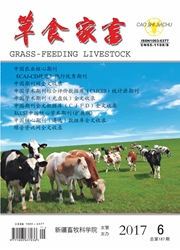

 中文摘要:
中文摘要:
由于大部分瘤胃微生物的不可培养性及传统的微生物培养和分离技术的局限使瘤胃微生物的研究受到制约.以rDNA为基础的分子生物学技术为瘤胃微生态的研究提供了新的渠道.如:克隆文库、序列分析,荧光原位杂交(FLSH),以及限制性酶切片段长度多态性(RFLP)、变性梯度凝胶电泳(DGGE)、单链构象多态性(SSCP)等DNA指纹技术都推进了瘤胃微生物的研究.本文对以rDNA分子技术为基础的主要研究方法和利弊、以及其在瘤胃微生物研究中的应用作以综述.
 英文摘要:
英文摘要:
Because of the limitations of traditional techniques based on mierobial isolation and eultivation, alternative methods based on molecular techniques have been developed to describe and identify rumen microbial communities. Recently, molecular biology and relevant techniques such as clone libraries, fluorescent in situ hybridization (FISH), DNA fingerprint techniques (RFLP, AFLP, DGGE, TGGE, SSCP etc. ) have been more and more used in the research of bacterial communities in rumen microbes. This paper attempted to demonstrate the major rDNA techniques and their application in rurnen microbes; In addition, potential problems of these techniques are also reviewed.
 同期刊论文项目
同期刊论文项目
 同项目期刊论文
同项目期刊论文
 The Preliminary Report on Rumen Protozoa Grazing Rate on Bacteria with a Fluorescence-labeled Techni
The Preliminary Report on Rumen Protozoa Grazing Rate on Bacteria with a Fluorescence-labeled Techni 期刊信息
期刊信息
